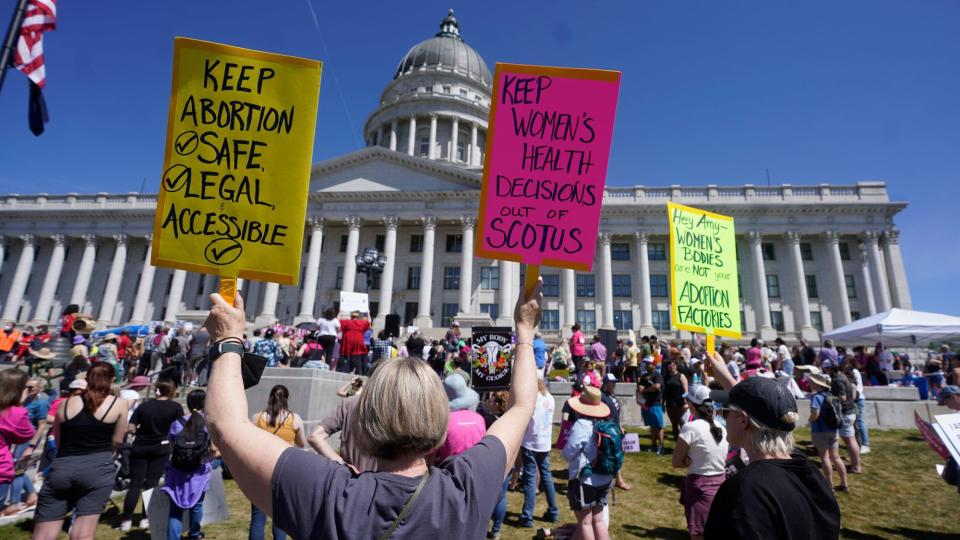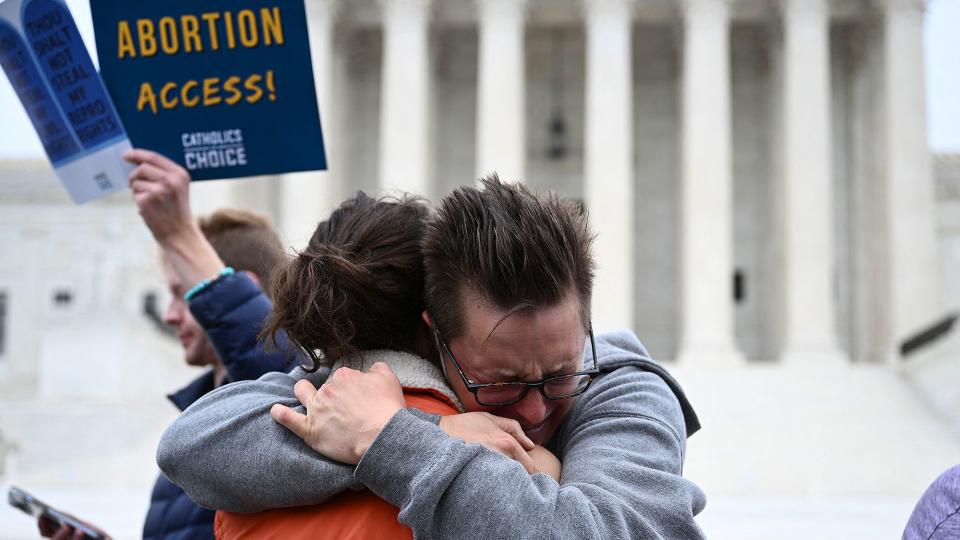Supreme Court Overturns 'Roe v. Wade,' Eliminating the Constitutional Right to Abortion

- Oops!Something went wrong.Please try again later.
Roe v. Wade, the landmark Supreme Court decision of 1973 that granted women the right to an abortion in every state, has been overturned by the U.S. Supreme Court.
The 6-to-3 ruling reverses nearly 50 years of precedent and will completely change the landscape of women's reproductive rights by giving individual states the power to decide whether to allow the procedure. It is estimated that nearly half the country will enact near-total bans in the coming months. The decision will divide the country, with most blue states allowing abortion and most red states severely limiting it.
"We hold that Roe and Casey must be overruled," Justice Samuel Alito wrote in the majority opinion. "The Constitution makes no reference to abortion, and no such right is implicitly protected by any constitutional provision."
RELATED: See Which States Will Soon Ban Abortions Now That the Supreme Court Has Overturned Roe
"It is time to heed the Constitution and return the issue of abortion to the people's elected representatives," Alito wrote. The 78-page opinion was backed by Justices Clarence Thomas, Neil Gorsuch, Brett Kavanaugh and Amy Coney Barrett, three of whom were appointed by President Trump.

Rick Bowmer/AP/Shutterstock
The process of overturning Roe v. Wade began when Mississippi's ban on abortions after 15 weeks was struck down by a federal court. The state then asked the Supreme Court to either overturn Roe v. Wade or allow states to pass pre-viability abortion bans.
Chief Justice Roberts, appointed by President George W. Bush, concurred in the judgment only, and would have limited the decision to upholding the Mississippi law.
Dissenting were Justices Stephen Breyer, appointed by President Clinton, and Justices Sonia Sotomayor and Elena Kagan, appointed by President Obama.
The decision echoes a draft of the opinon obtained by Politico that was leaked in early May in a major breach of confidentiality.

BRENDAN SMIALOWSKI/AFP via Getty
Prior to the verdict, Elizabeth Nash, state policy analyst at the Guttmacher Institute, a research group focused on abortion rights, told PEOPLE that the country will likely "start to see states, particularly the South, the Plains and Midwest, look to adopt abortion bans." At least twelve states, including Mississippi and Texas, have "trigger" laws in place that would automatically ban abortions.
"And that would make it very hard for a large percentage of women in the country to access abortion care in their own state. It means a lot more people would have to travel for care," Nash said. "And the people who are most impacted by these abortion restrictions and bans are people of color, low-income individuals, young people and LGBTQ individuals — people who are already burdened with insufficient access to healthcare."
However, there are efforts to maintain the right to abortion as Roe is overturned. Many states such as New York, Hawaii, California and Washington have statutory protections for abortion rights in their laws.

